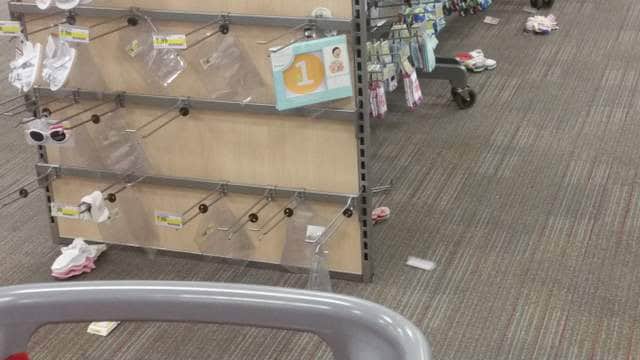
A “transitory foreign substance is any liquid or solid substance, item or object located where it does not belong. It is a substance found…where it is not supposed to be found.1
This definition was mentioned in a footnote in a case where a lady slipped on a brown banana without a peel and fell at a Florida Publix. Her case was allowed to go to trial. (Learn more about Publix slip and fall cases in Florida.)
In any slip and fall case, the first goal is for your case to get to trial. Many Florida slip and fall cases get dismissed before trial. The second goal is to win the trial.
The term “transitory foreign substance” is also used in Florida trial court orders, and appellate court decisions. You need to understand this term to understand these past cases.
You should understand every past Florida slip and fall these past cases to survive getting your case dismissed.
The term “transitory foreign substance” is part of Florida’s statute 768.0755, which is titled “Premises liability for transitory foreign substances in a business establishment.”
This statute (law) applies to every case where someone slips on a substance and falls in a Florida business establishment.
The statute says:
“(1) If a person slips and falls on a transitory foreign substance in a business establishment, the injured person must prove that the business establishment had actual or constructive knowledge of the dangerous condition and should have taken action to remedy it.
Constructive knowledge may be proven by circumstantial evidence showing that:
(a) The dangerous condition existed for such a length of time that, in the exercise of ordinary care, the business establishment should have known of the condition; or
(b) The condition occurred with regularity and was therefore foreseeable.
(2) This section does not affect any common-law duty of care owed by a person or entity in possession or control of a business premises.”
In Florida, if you slip and fall on a liquid or solid substance, item or object located where it does not belong in a business establishment, the injured person must prove that the business establishment had actual or constructive knowledge of the dangerous condition and should have taken action to remedy it.
If you cannot prove this, you will lose your slip and fall case and won’t be awarded damages.
What are some of transitory foreign substances that have been the subject of Florida slip and fall cases?
The following items are a transitory foreign substance if on the floor:
- Partially melted butter with lumps in it. Ramey v. Winn Dixie Montgomery, Inc., 710 So.2d 191, 192-93 (Fla. 1st DCA 1998)
- An old banana
- Sauerkraut
- Water
- Oil or grease
- Clothing on the floor of a store
- Frozen Peas that have water around them
- Frozen orange juice that has melted
- Many other substances
What are some dangerous conditions that are not transitory foreign substances?
![]()
- A dangerous curb in the courtyard of an apartment complex
- A Pothole
- Chipped or broken tile flooring
- Many other conditions
Footnotes
1 Owens v. Publix Supermarkets, Inc., 802 So.2d 315, 329 (Fla.2001). See Black’s Law Dictionary 660 (7th ed. 1999) (A foreign substance is “a substance found … where it is not supposed to be found”).
Call Me Now!
Call me now at (888) 594-3577 to find out for FREE if we can represent you. We answer calls 24 hours a day, 7 days a week, 365 days a year.
No Fees or Costs if We Do Not Get You Money
We speak Spanish. I invite you to learn more about us.
Leave a Reply